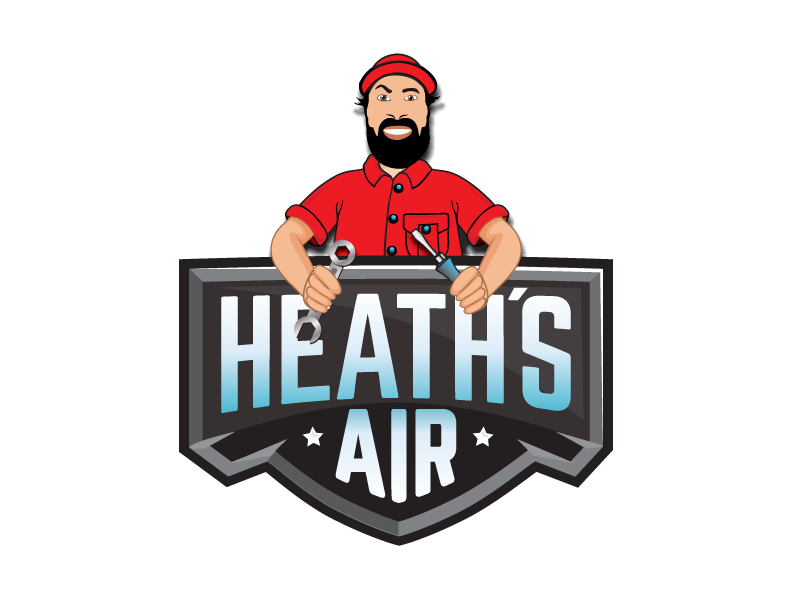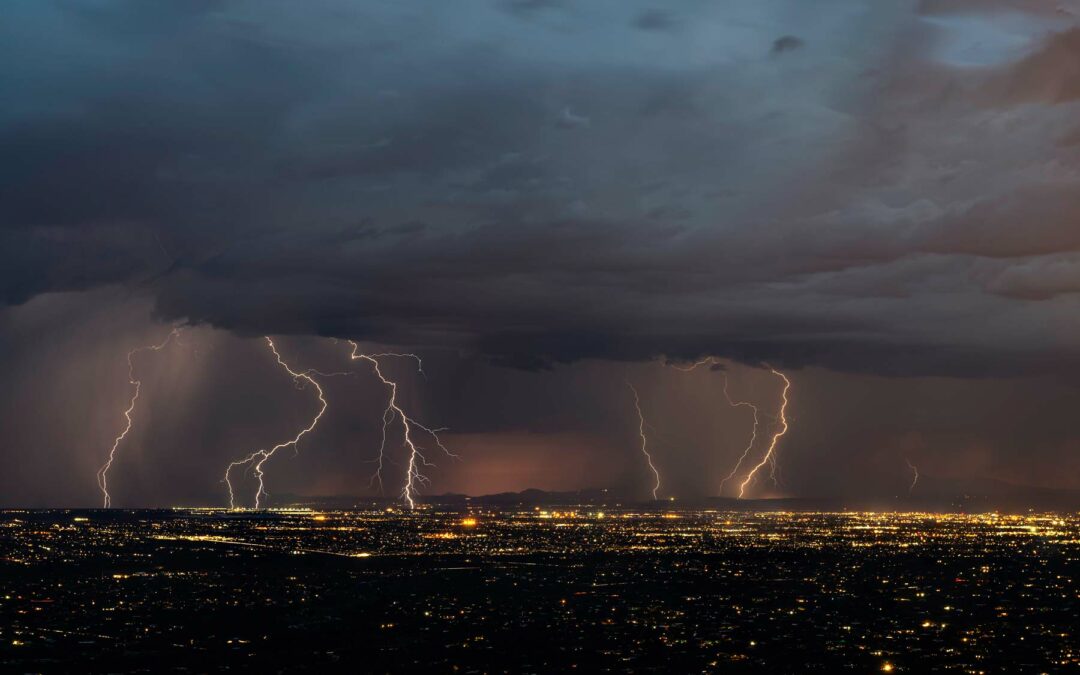Monsoon Season is here!
Summer has already arrived in Arizona and with it the monsoon season. This means that you not only have to contend with blazing temperatures but also some of the most intense storms our state has to offer. Luckily, there are some easy things you can do to protect your home and HVAC system. If trees and other debris clog your drain tubes, you can suffer water and possibly mold damage to the interior of your home.
The monsoon season occurs every year in Arizona from June through September. During this time, the warm desert winds cool and drop rain on us for about three months.
Monsoons result in higher than normal moisture levels in the air which can lead to mold growth within your home’s HVAC system. This can cause serious damage and repair costs if not addressed quickly.
Water Damage and Mold
A common problem during monsoon season in Phoenix is that water penetrates the system through the HVAC unit’s air intake. This is when condensation builds up inside your air ducts and causes mold to grow. The condensation can also cause the unit to overheat, resulting in more major repairs. When you notice mold growth in your home’s HVAC system, it’s important to contact a professional for immediate assistance. Early detection can keep this issue from becoming a costly repair project.
Prevent Tree and Debris Damage to Your HVAC Unit
If you have trees near your home, it is important to keep them trimmed up so that they don’t fall on your HVAC system. If there is a storm coming and you see that the tree in front of your house could be damaged, make sure to take action right away. If a tree falls on your house during monsoon season, it can cause extensive damage. For example, if branches break off due to heavy winds or storms, these branches can cause damage to your HVAC unit and other parts of your house. If this happens, you may need to call a professional to remove them so that they don’t cause further damage.
For dependable tree service in the East Valley of Phoenix, contact Jose or Marisol at Jose Knows Trees– their crew will help prep your property for monsoon season and assist with any storm damage clean-up.
Luckily, there are some easy things you can do to protect your home and HVAC system.
The first thing you should do is check the drain tube. This will ensure that it is not blocked or leaking and that it does not have leaves or other debris clogging it. You can use a hose to clean out any debris from the tube at the bottom of your home, which may help eliminate some of the problems with mold growth in the ductwork. If you have pets in your house, it is also important to make sure that their fur does not get trapped in the air conditioning system because this could cause serious damage over time.
You may want to consider having your air conditioner serviced by a professional if you suspect any problems with it. They should be able to clean out all of the ductwork, replace any damaged parts, and give the whole system a tune-up so that it is running properly again.
If you have been experiencing excessive moisture in your home or are worried about mold growth, you should talk with an HVAC specialist right away.
Preventative Maintenance is Important
If your HVAC unit is hard to access or not in the best condition, you may want to hire a professional that provides preventative services. The pros will inspect your system, make any necessary repairs, and then clean your air ducts. They can also install a new filter at this time.
If you decide to go with this option, it’s important to get an estimate before setting up an appointment so that you know what kind of budget to work with when scheduling services. You may also want to consider purchasing a warranty from the company since it will cover repairs for up to five years after installation.
Make Sure Your HVAC Unit is Protected
While the monsoon season is almost over this year, it’s never too early to start preparing for next year! Getting ahead of regular maintenance checks will help give you the peace of mind you need and reduce the risk of major repairs or the cost of replacing a unit.
For more information about protecting your HVAC system from monsoon damage, to schedule preventive maintenance service, or if you’re seeing signs of damage from a monsoon, contact Heath and his crew today!






